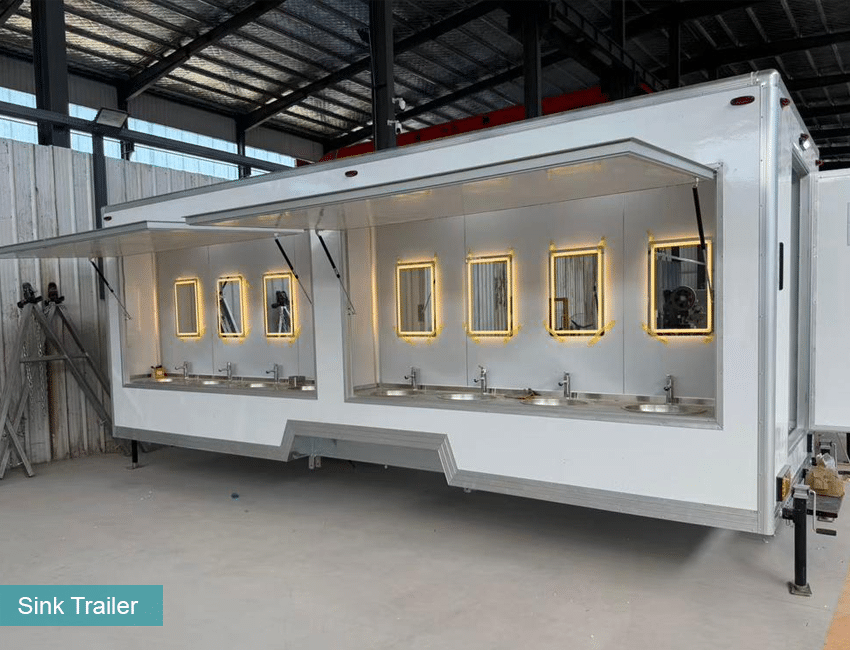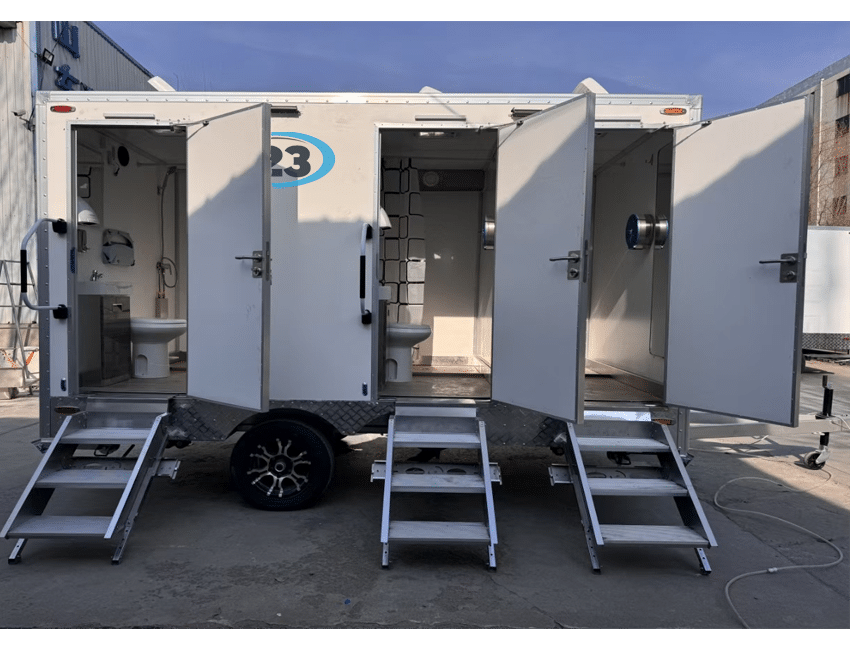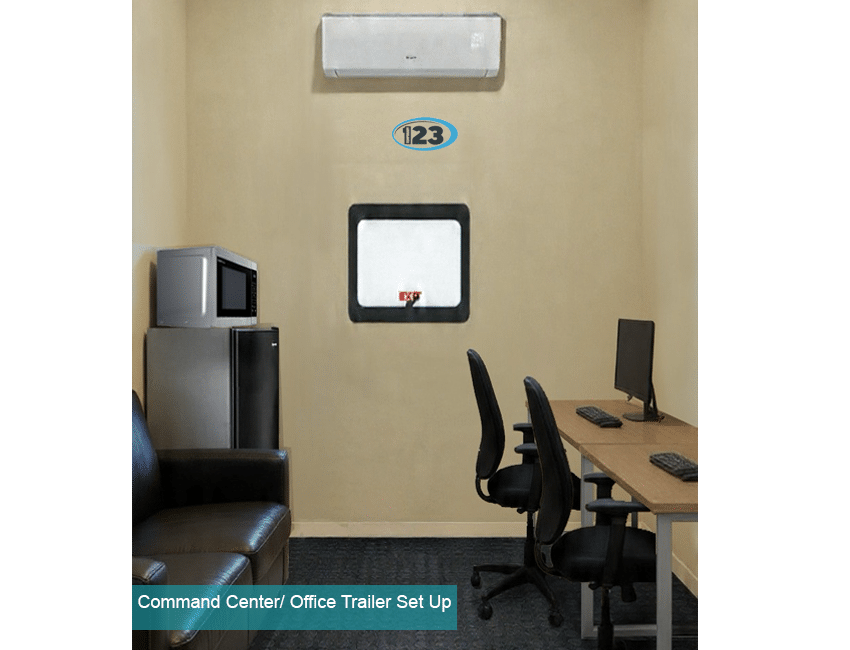











Reliable and Affordable Remote Facility Solutions for Your Workforce
In today’s demanding operational environments, maintaining safe, functional, and comfortable facilities in remote locations is not a luxury—it’s a necessity. Whether you’re managing a remote construction site, workforce housing camp, modular facility, or temporary operation, dependable facilities play a critical role in workforce health, safety, and productivity. Temporary Kitchens 123 specializes in delivering flexible, cost-effective, and fully compliant Temporary Facilities designed to support remote and temporary operations of any size.
Why Choose Our Temporary Facilities
Providing facilities in remote locations goes beyond basic infrastructure—it ensures safety, compliance, and workforce well-being. Organizations operating in isolated or temporary environments must meet strict regulatory requirements while maintaining operational efficiency. Investing in Temporary Facilities helps you achieve these goals without the expense of permanent construction.
Here’s Why Temporary Facilities Is Essential:
Health & Safety Compliance:
Ensure your remote operations meet OSHA, local health codes, and industry regulations with professionally managed Temporary Facilities.
Workforce Well-Being:
Comfortable living, dining, and sanitation facilities reduce fatigue, illness, and turnover while improving morale through Temporary Facilities.
Operational Continuity:
Reliable remote facilities keep projects moving forward, even in hard-to-reach locations, with Temporary Facilities.
Cost-Effective Solutions:
Renting Temporary Facilities eliminates the need for permanent builds while allowing you to scale facilities as project needs change.
Temporary Facilities: What’s Included?
When you choose Temporary Facilities, you gain access to a wide range of modular, temporary, and remote-ready facility solutions. These units are designed for fast deployment, long-term durability, and ease of maintenance in challenging environments.
Some of our most popular Temporary Facilities options include:
1. Remote Workforce Housing Facilities
Ideal for remote construction sites, industrial projects, and emergency response operations, workforce housing facilities provide safe and comfortable accommodations where permanent housing is unavailable.
Key Features:
Climate-controlled sleeping quarters
Multiple layout configurations to support any workforce size
Quiet, insulated designs for restful sleep
Regular servicing and maintenance for your Temporary Facilities
2. Remote Temporary Dining Facilities
Proper dining facilities are essential for workforce health and productivity in remote locations. Our temporary dining facilities provide clean, functional food service spaces wherever they are needed.
Key Features:
Modular kitchen and dining layouts
Compliance with health and safety standards
Easy setup and scalability as part of your Temporary Facilities
Ideal for construction camps, workforce housing, and remote facilities
3. Remote Construction Facilities
Remote construction projects often lack permanent infrastructure. Our Temporary Facilities deliver fully supported construction facilities that keep job sites compliant and operational.
Key Features:
Durable, heavy-duty modular buildings
Office, storage, and breakroom configurations
Turnkey setup including delivery and installation
Ongoing support to ensure compliance for your Temporary Facilities
4. Modular and Temporary Facility Solutions
Our modular and temporary facilities provide adaptable solutions for a wide range of remote operational needs.
Key Features:
Modular buildings for offices, housing, or command centers
Temporary facilities for short-term or emergency use
Customizable layouts as part of your Temporary Facilities
Designed for remote and off-grid environments
Why Choose Temporary Kitchens 123 for Your Temporary Facilities Needs?
Temporary Kitchens 123 is a trusted provider of remote facilities, workforce housing, modular buildings, and temporary construction facilities nationwide. Our experience, logistics expertise, and customer-first approach ensure your remote site is supported from day one.
Why Partner with Us for Temporary Facilities?
Flexible Rental Terms:
Rent Temporary Facilities for short-term projects, long-term operations, or emergency response needs.
Premium Quality Units:
All facilities are thoroughly inspected, maintained, and serviced to meet strict safety and performance standards.
Nationwide & Remote Coverage:
We deliver Temporary Facilities across the U.S., including rural, remote, and hard-to-access locations.
Rapid Deployment:
Same-day or next-day delivery available for urgent Temporary Facilities requirements.
Turnkey & Eco-Conscious Options:
Choose from sustainable, energy-efficient solutions designed for remote environments.
Industries That Benefit from Our Temporary Facilities
Temporary Kitchens 123 proudly supports a wide range of industries that rely on dependable remote facilities:
1. Remote Construction & Infrastructure Projects
Provide housing, offices, and dining facilities that keep crews safe and productive using Temporary Facilities.
2. Workforce Housing & Labor Camps
Support long-term or rotating crews with comfortable, secure living accommodations through Temporary Facilities.
3. Emergency & Disaster Response
Rapidly deploy temporary and remote facilities to support emergency operations with Temporary Facilities.
4. Industrial, Energy & Utility Operations
Maintain operational continuity in remote environments with modular and temporary facilities via Temporary Facilities.
Frequently Asked Questions (FAQ)
What types of operations benefit from Temporary Facilities?
Remote construction sites, workforce housing camps, emergency response operations, modular facilities, and temporary job sites all benefit from Temporary Facilities.
Are your facilities compliant with safety and health standards?
Yes. All Temporary Facilities comply with OSHA, local regulations, and applicable industry standards.
Can I rent Temporary Facilities short-term or long-term?
Absolutely. We offer flexible rental options to match your project timeline.
Do you offer eco-friendly Temporary Facilities?
Yes. We provide energy-efficient and sustainable facility options suitable for remote locations.
How quickly can Temporary Facilities be deployed?
Delivery timelines vary by location, but same-day or next-day service is available when inventory allows.
Contact Us for Temporary Facilities
Ready to support your remote operations with reliable, compliant, and fully supported facilities? Contact Temporary Kitchens 123 today to learn more about our Temporary Facilities solutions.
Phone: +1-(800)-205-6106
Lists of States we served throughout USA
Alabama
Alaska
Arizona
Arkansas
California
Colorado
Connecticut
Delaware
Florida
Georgia
Hawaii
Idaho
Illinois
Indiana
Iowa
Kansas
Kentucky
Louisiana
Maine
Maryland
Massachusetts
Michigan
Minnesota
Mississippi
Missouri
Montana
Nebraska
Nevada
New Hampshire
New Jersey
New Mexico
New York
North Carolina
North Dakota
Ohio
Oklahoma
Oregon
Pennsylvania
Rhode Island
South Carolina
South Dakota
Tennessee
Texas
Utah
Vermont
Virginia
Washington
West Virginia
Wisconsin
Wyoming
District of Columbia
Temporary Kitchens 123 also provides
- Modular Construction Offices
- Modular Office Building Rentals
- Construction Trailer Rentals
- Complete Basecamp & Event Rentals
- Mobile Kitchens Rentals
- Refrigeration Trailer Rentals
- Dishwashing Mobile Rentals
- Laundry Temporary Rentals
- Shower Workforce Rentals
- Restroom Trailer Services
- Living Facilities Temporary
- Emergency Generator & Power Services
- Potable Water Services
- Potable Water Tank Rentals
- Emergency Drinking Water Tank Services
- Remote Catering Services
- Remote Hospitality Services
- Remote Catering Services
- Basecamp Services
- Basecamp Turnkey Services
- Emergency Temporary Facility Rentals
- Construction Modular Offices
- Emergency Temporary Shelter Facilities Rental
- Sleeping Quarters
- Galley
- Eating (Mess) Facilities
- Food Storage
- Laundry Facilities
- Recreation Facilities
- Installation Control Room
- Crew Offices
- Boot/Locker Room
- Heating, Ventilation, and Air Conditioning (HVAC) Systems
- Fire and Gas Detection
- Helideck
- Lifeboats
- Emergency Power Generation
- Firewater (Seawater Lift) Pump(s)
- Instrument and Plant Air Compression
- Potable Water Plant
- Aviation Fuel Storage
- Sewage Treatment and Disposal
- Rentals:
- Equipment Renting
- Module Rentals
- Module Rentals
- Module Containerized Accommodations
- Accommodation Platform Equipment Rental
- Accommodation Platform Sleeper Module Rentals
- Specialized Accommodations:
- Temporary Accommodations and Sleeping Modules for Rental
- Containerized Temporary Accommodations
- Containerized Shower Modules
- Facility Modules:
- Gym Models
- Laundry Modules
- Shower Modules
- Locker Room Modules
- Restroom Modules
- Mobile Kitchen Modules
- Modular Kitchen Containerized Facilities
- Containerized Module Rentals
- Sanitation
- Sewage Treatment and Sewage Processing


